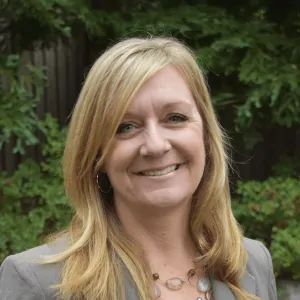

On December 15, 2017, David Biderman, Executive Director and CEO of The Solid Waste Association of North America (SWANA) released comments in response to the Ministry of Environmental Protection (MEP) of the People’s Republic of China’s November 15, 2017, Notifications to the World Trade Organization (WTO) concerning restrictions on the import of solid waste.
We thank SWANA and Mr. Biderman for authorizing SCS Engineers to publish the comments for the benefit of all industry stakeholders and encourage you to share the letter.
Share this post using the icons at left, or download the SWANA letter using the button just under the letter window. SCS Engineers does not collect or share your contact information.
SCS Engineers will continue to publish articles, white papers, and blogs pertaining to this and other relevant issues on our website. You are welcome to contact us if you are looking for specific information on technical and business issues that concern you.
The authors of this article in Renewable News thought it would be interesting
to readers who are in the recycling industry to see the kind of commodity pricing issues that were discussed in a recent analysis for a large recycling project study.
The data on price variability and waste composition were used to prepare several scenarios in Pro Forma modeling to predict the “downside” of market shifts in project performance. In our experience, this provides stakeholders with good ideas of potential market risks and the potential sharing of anticipated revenues with high, medium, and low-end pricing of recyclables.
The U.S. is heavily dependent on the Chinese market for absorbing a major percentage of
recyclable paper and plastics we generate. So, potential changes to that market initiated by the Chinese is a cause for concern and for assessing contingencies. Officials for the Scrap Recycling Industries, China Scrap Plastics Association, and Bureau of International Recycling all indicated that China may be rolling out a new policy for expanding the list of banned materials and tightening the quality standards of recyclables coming into their country. Increasing knowledge of the markets and the impact on your program is a good way to get ahead of the potential impact of China’s new restrictions.
Increasing knowledge of the markets and the impact on your program is a good way to start getting ahead of the potential impact of China’s new restrictions.
Recycling and sustainable services including waste and financial analyses
by Tracie Onstad Bills, Northern California Director, Sustainable Materials Management at SCS Engineers
For many years source separation was the primary method for recycling. However, technology has changed how recyclables are collected and processed. China, the largest importer of materials for recycling now strictly enforces regulations on importing contaminated materials for recycling into the country. China’s Operation Green Fence puts restrictions on what material China will accept, rejecting materials that don’t meet higher standards of cleanliness; that means rejected materials get buried in a landfill instead of being recycled.
Regardless of the type of recycling program, the biggest challenge here at home is now minimizing contaminated recycling material. Communities are struggling to meet diversion goals and provide materials to local recyclers that are free of common contaminants such as liquids left in containers or motor oil. My SCS team has assisted communities in the last few years to address contamination issues and I’d like to share what works best to kick start addressing the issue at home.
Recycling Assessments: Conduct a visual and physical characterization study to identify contamination levels using one of these two methods for the evaluation:
Recycling Technical Assistance: Meet with local businesses and perform a walk-through of their facility to collect baseline waste assessment and material collection infrastructure information. This information can then be used to provide customized recycling and composting recommendations, and implementation support such as employee training sessions, providing signage and collateral, referrals, and multi-lingual outreach services.
Review and Analysis of Community Recycling Programs: Review and analyze your recycling program. An environmental engineer can provide recommendations and assessments on how a recycling program can be enhanced to reduce the quantity of contaminated materials. Services typically include everything from examining outreach materials to the flow of the recycling from generation to transport to processing.
Planning and Implementation of Behavior Change Programs: There is value in providing comprehensive programs and explicit outreach materials for increasing the probability of cleaner recycling. Behavior change programs focus on planning and implementing programs that identify key triggers to encourage action in the community. These programs help communicate the importance and value of specific activities to the community and cross any age and cultural barriers.
Contamination is a global problem and is challenging, but there are steps to minimize the problem in your community.

About Tracie Onstad Bills
Tracie Onstad Bills has been in the Environmental and Resource Material Management Field for over 20 years. Her expertise revolves around commercial recycling technical assistance, environmental purchasing, large venue and event zero waste programs, research and sustainability planning, garbage hauler franchise compliance and review, construction and demolition program / ordinance analysis and writing, climate inventory compilation, research and feasibility studies to help clients with comprehensive waste prevention and zero waste programs. Ms. Bills has a BA in Environmental Science from San Jose State University, is a CRRA Board member and belongs to the SWANA Gold Rush Chapter, National Recycling Coalition and the Northern California Recycling Association. Contact Tracie here.
Learn more on the SCS service pages and read SCS project case studies from across the nation to help fine tune your program: